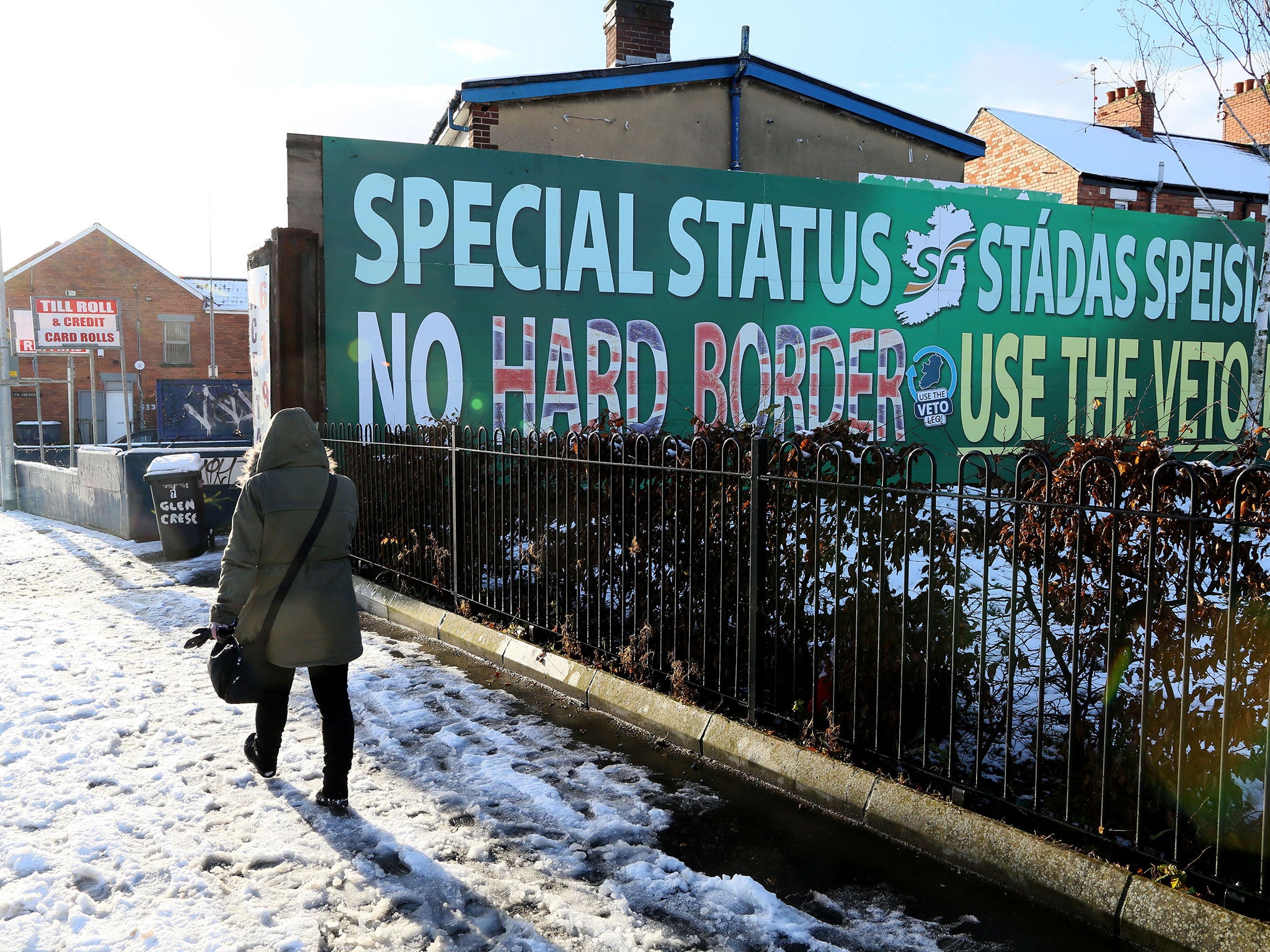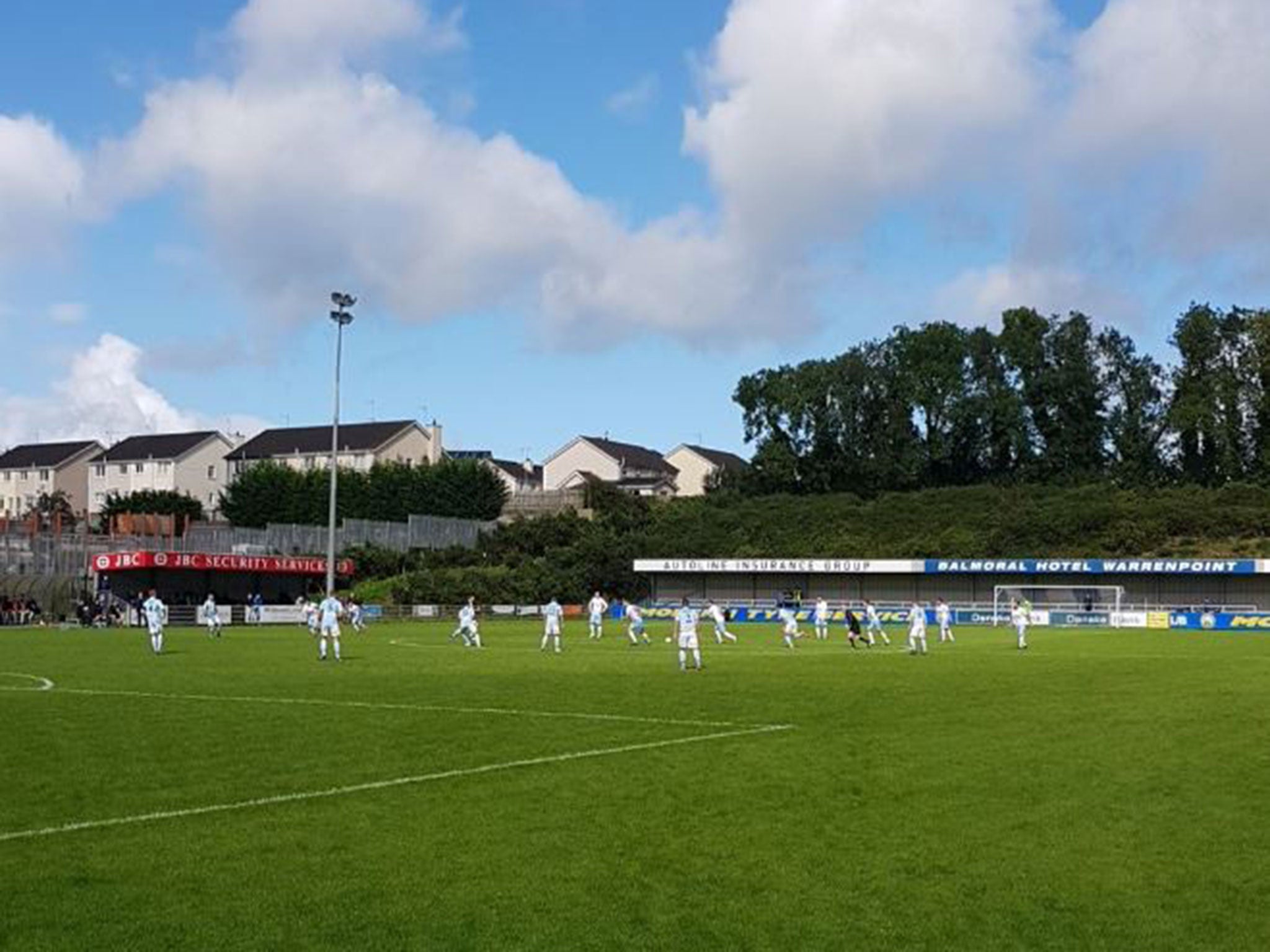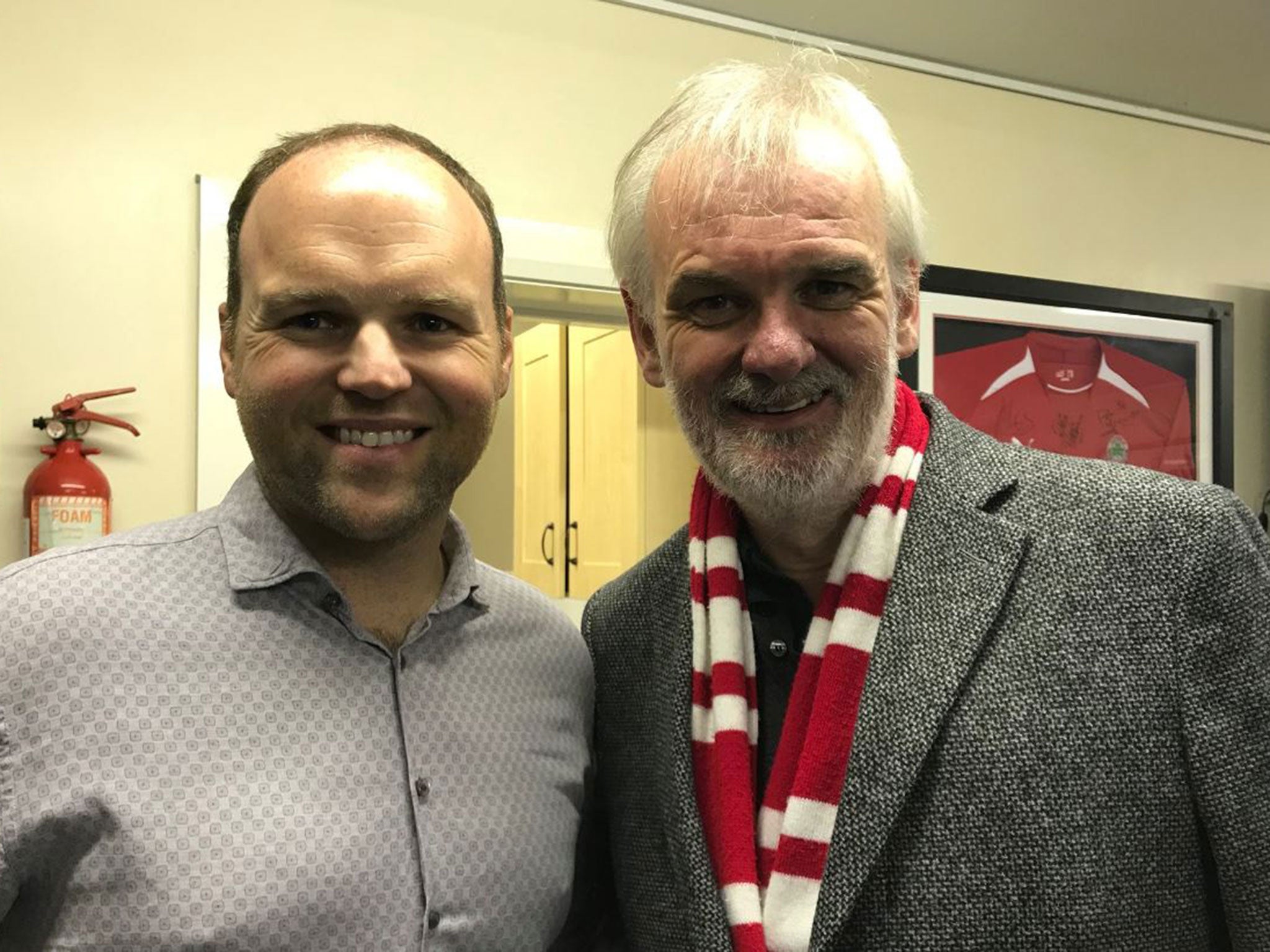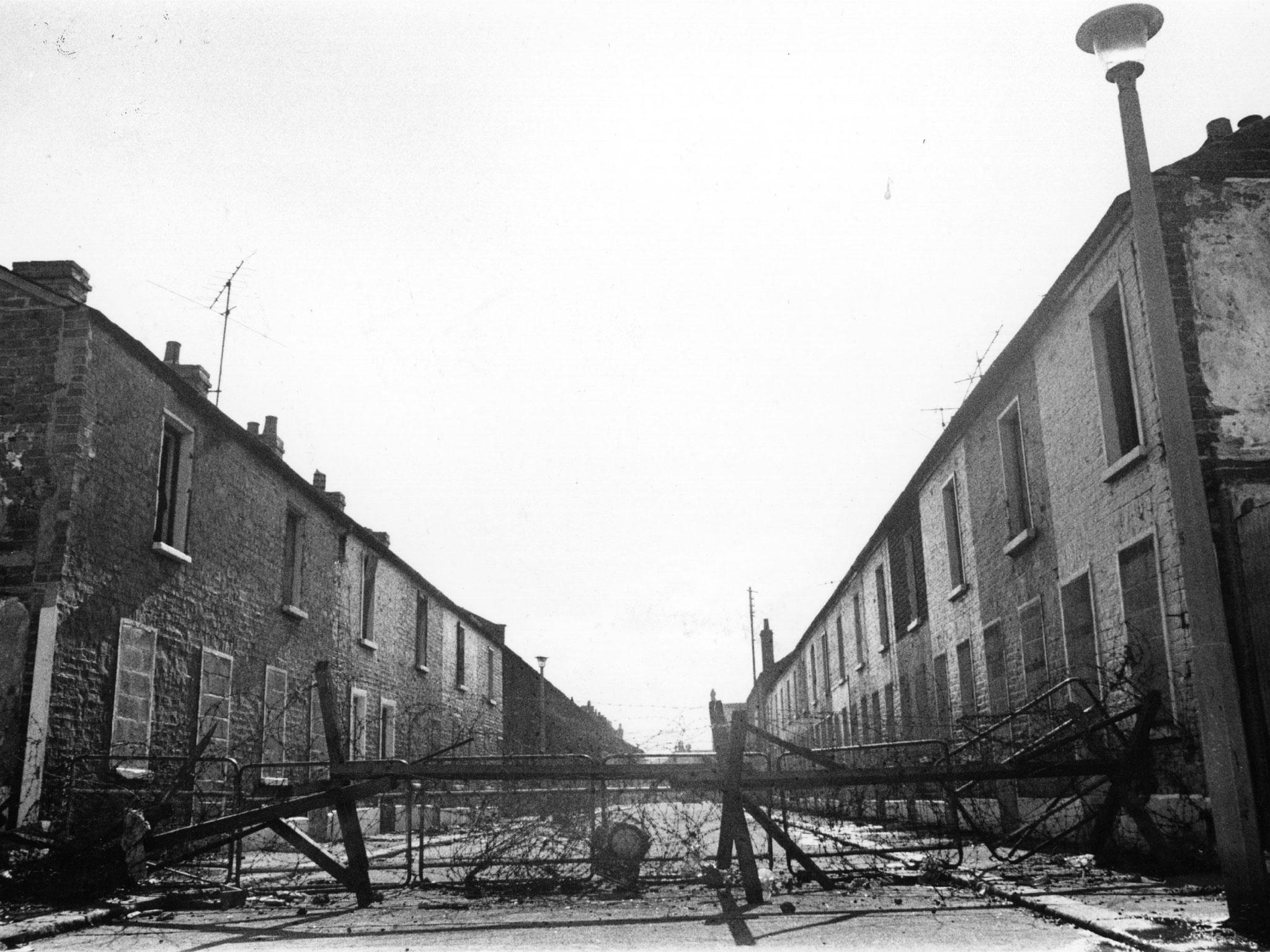Christmas on the Irish border: How one of Brexit's biggest issues is playing out in football
Football, like everything else adjacent to Ireland’s 96 year-old border, has been contemplating its existence and non-existence since the Brexit vote of June last year

Your support helps us to tell the story
From reproductive rights to climate change to Big Tech, The Independent is on the ground when the story is developing. Whether it's investigating the financials of Elon Musk's pro-Trump PAC or producing our latest documentary, 'The A Word', which shines a light on the American women fighting for reproductive rights, we know how important it is to parse out the facts from the messaging.
At such a critical moment in US history, we need reporters on the ground. Your donation allows us to keep sending journalists to speak to both sides of the story.
The Independent is trusted by Americans across the entire political spectrum. And unlike many other quality news outlets, we choose not to lock Americans out of our reporting and analysis with paywalls. We believe quality journalism should be available to everyone, paid for by those who can afford it.
Your support makes all the difference.Christmas on the Irish border. In the shadow of the Mourne mountains in County Down they are taking it one game at a time. At Irish League club Warrenpoint Town, where the home dressing room sports the slogan “success is a lot of small things done well”, they are emptying the bins and rolling the pitch.
Friday night brings the Irish League leaders, Coleraine, and an estimated 500 travelling fans, to Warrenpoint’s Milltown ground.
There is, therefore, some anticipation in the air, but beyond that and the seasonal atmosphere, this young, small club wait and see. It’s what everyone is doing along the 310-mile border.
“See those mountains there?” asks the Warrenpoint Town chairman Connaire McGreevy, pointing south out of the clubhouse window towards the Cooley range in Co. Louth, “that’s the Republic of Ireland – a mile, mile-and-a-half away as the crow flies.
“A hard border? Going back to the old days? There’s no appetite here for that at all.”
Football, like everything else adjacent to Ireland’s 96 year-old border, has been contemplating its existence and non-existence since the Brexit vote of June last year. Eighteen months on there is still no political certainty, though there is a certainty of tone from McGreevy.
“There would be major, major issues for this local area,” he says of a possible return of a physical border between Northern Ireland and the Republic.
“In terms of tonnage, we have the third biggest port on the island right now and the reason for that is access to markets north and south. So if you put up a hard border, that would be hit.
“Other businesses, including my own, operate north and south. The natural flow of work is across the border and we’re far from unique in this area. This is our natural hinterland.

“Business has geared itself to work across a seamless border. It’s a ten-minute drive from here and it’s seamless - you notice the lines on the road and the phone network may change, but that’s all. A return of a hard border would impact lives, the economy.”
McGreevy speaks as a former local councillor, a businessman with a cross-border company and as a football club chairman.
Warrenpoint Town were founded in 1987 and, akin to a rising non-League club in Britain, have made their way up into the Irish League’s top division.
Facilities at Milltown are limited but the club is ambitious. It has plans to expand. Part of that is about buildings, part of it is about recruitment. Warrenpoint play in the Irish League in Northern Ireland but, geographically, the town is closer to Dundalk across the Irish border than to Belfast.
“As a club we’re trying to expand into Co. Armagh and north Louth because that’s our natural catchment area geographically,” McGreevy says. “We’ve had a steady stream of players from there and any hard border would affect that.

“Our head of youth football, Stephen McDonnell, is from Dundalk. He’s young, had to retire early and we’re investing in him and our youth structures. That’s our future.
“Stevie’s been scouting there. A hard border is going to delay him every time he crosses it and I’ll understand if he doesn’t stick at it. Anto Reilly, he’s in our first team, he’s young, developing and he’s from Dundalk too. Would they stay with the hassle of a border? Of course not.”
In the ‘Point’s tiny clubhouse, two green Irish jerseys are framed on a wall. One is a Northern Ireland shirt from 2006, the other a Republic of Ireland shirt from 2005. It is an indication of border geography, while a banner behind one of the goals reads: ‘Love Football: Hate Bigotry’.
As a place, Warrenpoint will be forever linked to the Troubles. It was here in August 1979 that the IRA killed 18 British soldiers on the same day that Lord Mountbatten was blown up off the coast of Co. Sligo.
The peace process superseded those bloody days and the hard, militarised border British troops fired across in response was gradually replaced. Today there is no sign of the checkpoints of the past.
The border still has a defining presence in Irish football, however. The island sends out two national teams and there are two leagues – the Irish League in the north and the League of Ireland in the south.

It means there is a fight for finance and attendances and, given the tradition of Gaelic football in Co. Down and across Ireland, players.
Only this week Portadown, who played Porto and Red Star Belgrade in the European Cup in the early 1990s, said they are in danger of folding. Warrenpoint’s neighbours Newry Town – where Pat Jennings began – have already been through financial turmoil and are now Newry City.
“There’s not a lot of money in the Irish League,” McGreevy says. “People call it semi-professional, but you’re either professional or you’re not. The reality is that while we have players on professional contracts, they’re amateurs. The players train twice a week here at night and play on the weekend. They’ve all got other jobs.”
On Friday night Warrenpoint Town’s players’ other job is to halt Coleraine, who are seeking a first Irish League title since 1974. That has brought renewed interest this season. They might win it before Brexit – soft, hard or none at all – is negotiated.
“So it’s wait and see,” McGreevy says. “The long-term vision is to develop players. If part of our natural hinterland is cut off, we will deal with it, but a hard border would have an impact. For us it’s about building - the natural hinterland must be maintained.”
Join our commenting forum
Join thought-provoking conversations, follow other Independent readers and see their replies
Comments